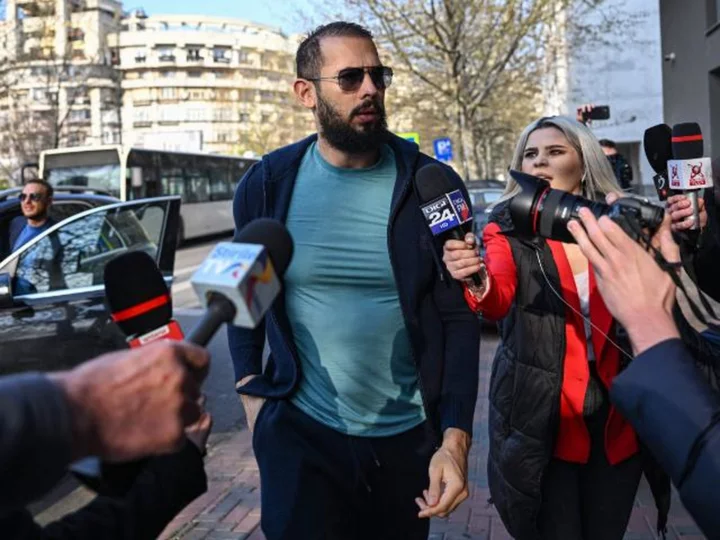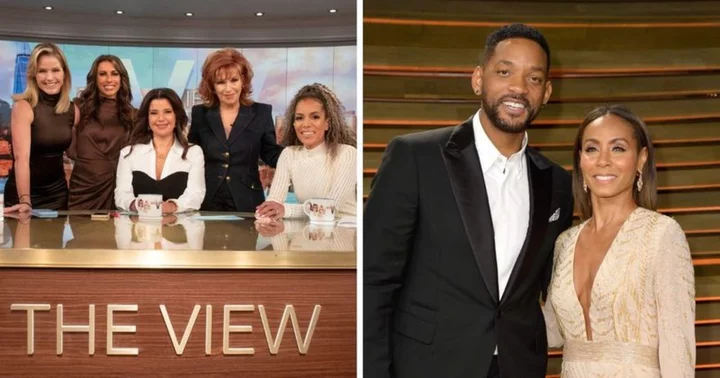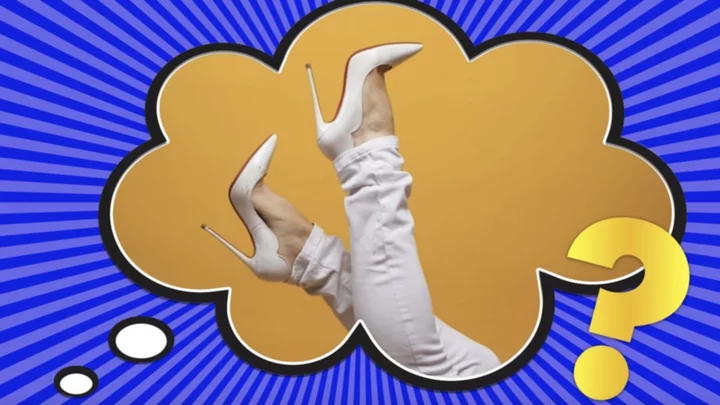Some news organizations are beating around the bush when covering prominent figures who hold detestable views, many of which are wholly unhinged from reality.
That has been on display over the last 24 hours on three different fronts: In stories about Robert F. Kennedy, Jr. In stories about Rep. James Comer. And in stories about Andrew Tate.
Those three figures are typically not mentioned in the same sentence. But they are all benefiting from one common shortcoming of news organizations: the failure to describe in clear-eyed terms the outrageous — and often dangerous — ideas that some politicians and commentators peddle to millions.
Comer is referred to as the Republican House Oversight Committee chair. Kennedy as a Democratic presidential contender. And Tate as a social media influencer.
None of that is enough.
"This type of normal language news organizations use doesn't communicate how unhinged some of this stuff is," media columnist Margaret Sullivan told me Tuesday. "The language of news gets very watered down and it's flattened and it's hard for people consuming it to understand it's not normal stuff."
"The truth is not coming across," Sullivan added.
In fairness, news outlets often do include a hair of context. For example, Kennedy might be referred to as an "anti-vaccine activist" at some point in a story. But such a moniker, often buried paragraphs deep into an article, fails to adequately convey to people tuning in or reading online how deranged and insidious the falsehoods he promotes are.
Just in the past week, Kennedy has suggested that supposed chemicals in the water supply are causing children to become transgender, that wi-fi causes cancer, and that cell phone usage causes brain tumors.
"Anti-vaccine activist" simply does not capture that level of conspiratorial disinformation. And it doesn't capture the real harm the falsehoods Kennedy spewed about vaccines did during the height of the Covid-19 pandemic when countless lives could have been saved if people had not bought into a disinformation campaign that led them to reject widely available vaccinations.
Dr. Jonathan Reiner, a professor at George Washington University's medical school and a CNN medical analyst, noted to me Tuesday that news organizations largely cover Kennedy as a "quirky firebrand," but he has a long history promoting dangerous "science disinformation."
"On multiple occasions, he's compared Covid vaccines to Nazi concentration camp experiments," Reiner noted to me, rhetorically asking, "Does this sound like the discourse of a grounded person?"
It is not just Kennedy, however, that news organizations struggle to describe in plain terms.
Comer, a Kentucky congressman, has a long history of making wild claims on a host of issues, including in the aftermath of the 2020 presidential contest when he dabbled in election denialism. The Republican routinely accuses Democrats of grave wrongdoing while simultaneously excusing the behavior of disgraced former President Donald Trump. Most recently, he has been attacking Hunter Biden and trying to tie illegal activity to President Joe Biden. But his allegations of serious wrongdoing by the president have not been supported by any real evidence — and, last month, Comer bizarrely revealed on national television that he "can't track down" a supposed whistleblower.
And yet, news organizations often choose to leave that context out. When Comer released a statement Tuesday smearing the Department of Justice over a supposed "two-tiered" justice system, many news outlets uncritically passed along his claims and simply attributed them to the "House Oversight Committee chair," lending the statement an air of legitimacy.
The same can be said about Tate, the internet persona who has gained infamy pushing misogynistic extremism to young men. Tate, who openly admits he is a sexist, has made more reprehensible comments than can be accounted for. But several news organizations on Tuesday, reporting that he had been charged with rape and human trafficking, referred to him as merely an "influencer" and "social media celebrity."
Readers and viewers that turn to news organizations often do not follow the ins and outs of stories like journalists do. It should not be assumed that they know how unhinged Kennedy's beliefs are, that Comer's claims of bombshell wrongdoing by Democrats are regularly unsupported by actual evidence, or that Tate is an extremist who preaches misogyny. People depend on news organizations for that information and context. And when news organizations fail on that front, they fail the viewers and readers.
Incorporating certain facts into a story can be uncomfortable at times, or potentially alienate parts of an audience who may not want to hear them. But the duty of a journalist and news organizations is to tell the story, without fear or favor. To spell out the facts, using clear language. Not to avoid them.
These troubling facts are crucial pieces of the stories. For instance, Tate's history of misogyny is a key to understanding a story about him being charged with sex crimes. Failing to prominently mention that information means an integral part of the story is missing. In other words, it is bad journalism.
In some circumstances, news outlets get this right. It's difficult to find a story about Infowars founder Alex Jones that does not refer to him as a deranged right-wing conspiracy theorist. But Jones is too often the exception.
Perhaps it is harder to call a Kennedy a whacky conspiracy theorist or affix such a title to a prominent member of government. But that is no excuse. If anything, the fact these people hold respected positions in society means that it is even more important to be direct with audiences about who they are.
A failure to be transparent and include key context in reporting comes at a great societal cost. It gives those figures who profit financially and/or politically from extremist rhetoric license to continue trafficking in the destructive noise. And, perhaps more importantly, it leaves audiences with a distorted sense of events.
"In many cases we come back to the endemic problem of wanting to bend over to seem extremely neutral and not use language that might be perceived as not fair," Sullivan said. "Of course, when we do that there is another kind of fairness we miss, which is the truth."









